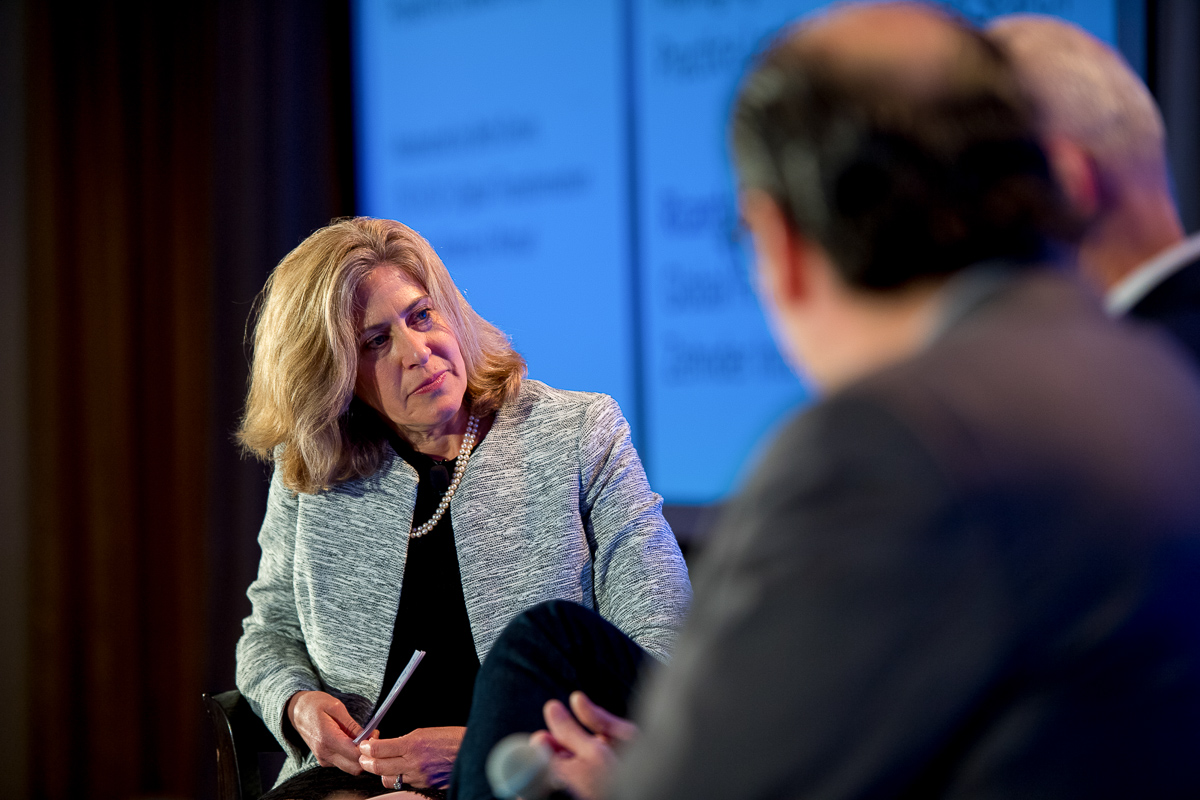
If you’re a startup founder preparing for a growth spurt, you may not be as ready for scale as you think you are. There’s a simple model you can use to assess your readiness for growth — and chances are, some of your prospective investors or advisors are using it, too.
Among them is Beth Devin, a strategic advisor at HearstLab, an innovation unit of Hearst whose mission is to close the gap in VC funding for women by helping founders build healthy, sustainable and highly scalable businesses. A longtime executive in media and finance, with prior roles CTO, CIO and managing director roles at Citi, Silicon Valley Bank, Charles Schwab and Turner Broadcasting, Devin is known as a “tech whisperer” for her ability to build and lead technology teams while keeping the business strategy and goals at the forefront.
In her role as a startup scout, Beth Devin evaluates early-stage startups using a rubric developed by the global design company IDEO. It boils down to six questions that measure “desirability, feasibility and viability,” she said. Those are the key ingredients to growth or scale.
“There are startups we work with who have had to do a couple of pivots before they really get traction,” Devin added. In a Founders Network session, Devin shares the six key questions startups should answer before achieving scale.
Register at Founders Network’s webinar for a complimentary pass, or find out if you qualify for full membership here and get advice on:
- Sizing up the pain point you’re solving for
- Ensuring your solution is intuitive and understandable
- Assessing the technology and talent needed to execute
- Evaluating your growth plan in a specific marketplace
- Testing the market constantly to pivot when needed
The first question is: Are you filling a genuine need?
“If people don't understand what you do. It's really hard for them to get on board.” - @bdevintracy Share on X“You may think you have this great idea, but there may not be a big enough pain point or enough motivation for people to want to adopt a great idea,” Devin explained. “It might be more like a nice to have, or as I’ve sometimes called it, like taking vitamins.”
“That points to how large your prospective customer base is, whether they be consumers of enterprises. And figuring out how to validate and address those genuine pain points can be a tough nut to crack for some startups,” she added. Another component of desirability whether or not your solution is intuitive — in other words, easy to describe and to understand:
“If people don’t understand what you do. It’s really hard for them to get on board,” Devin said.
“It’s not a one-and-done exercise. Be self-reflective and honest: Get out other people's opinions, test the market, and make sure you know the whole plan and path you're moving forward on.” - @bdevintracy Share on XFeasibility is an indicator of your ability to execute the idea. That ties both into the available technology — is your solution going to be reliable when built at scale? — as well as your team’s track record as well as your ability to fill key roles needed to grow.
“The technology is critical, as well as the right team to execute your plan for building this company,” Devin said. “We have a lot of startups, for example, that have a small team and may have their original strategist or idea person, and maybe a CTO on board. But they may not have a sales team, or a marketing team — and all of those things are so important for scale.”
Finally, viability points to your startup’s ability to gain traction, grow and retain your customer base, and compete in a specific marketplace over a longer period of time: “Have you really done your homework, and made sure there’s a addressable market out there that is that’s big enough to sustain this growth you’re aspiring to?” said Devin.
“Some people feel like a pivot is viewed as a negative. I don't see it that way at all: The ability to flex and change is actually a sign of strength.” - @bdevintracy Share on XWhile desirability, feasibility and viability may be particularly critical for startups preparing for a growth period, it’s a good idea for startup founders to revisit these questions regularly.
“It’s not a one-and-done exercise. Be self-reflective and honest: Get out other people’s opinions, test the market, and make sure you know the whole plan and path you’re moving forward on,” Devin added. “Some people feel like a pivot is viewed as a negative. And I don’t see it that way at all: The ability to flex and change is actually a sign of strength. Sometimes, original founders don’t see that.”






